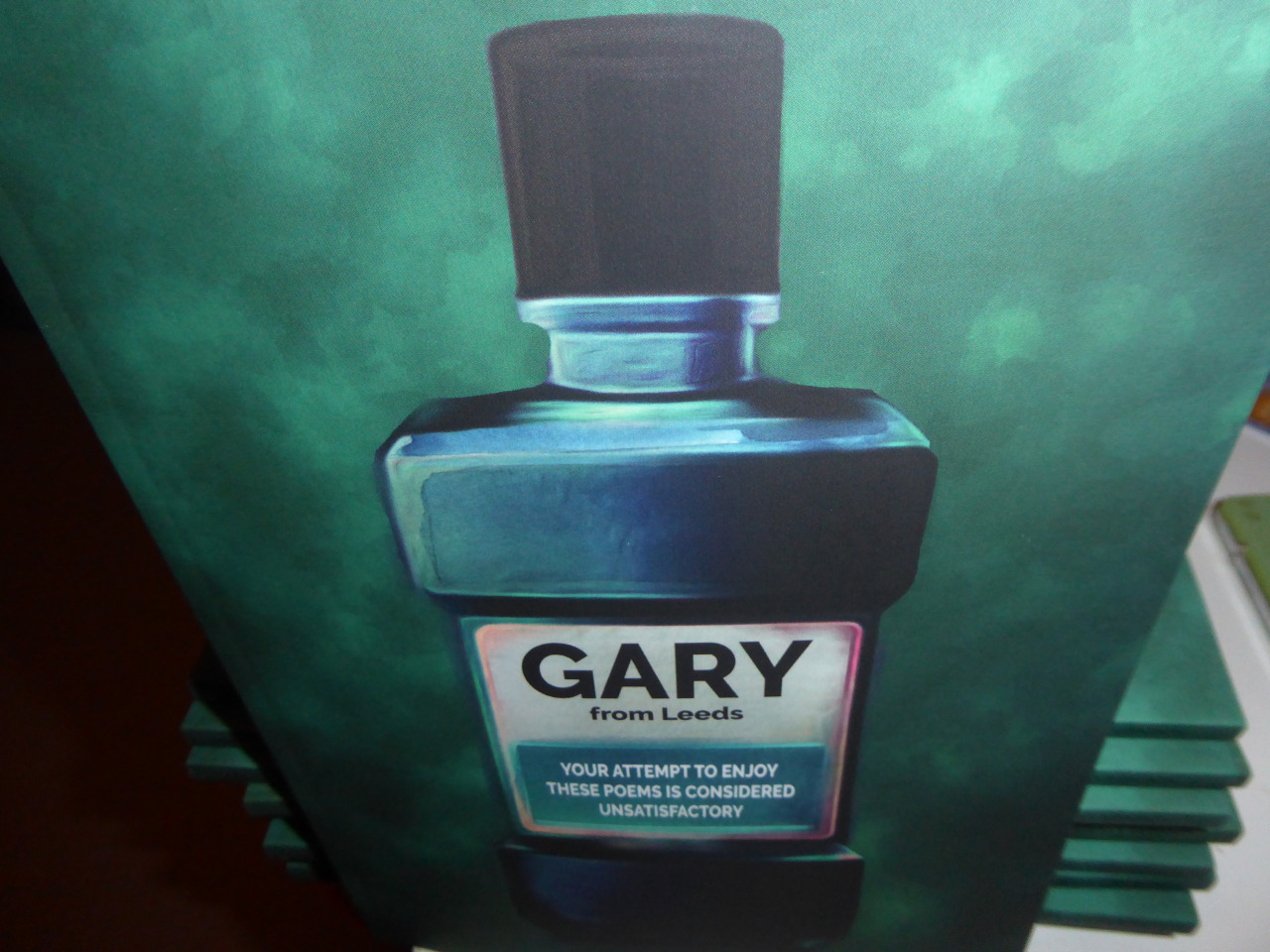Artist Spotlight #3: Kate Tempest part 1
– reviewed by James Webster –
Kate Tempest is pretty much the reason I got into performance poetry. From the first time I saw her perform (at Hammer & Tongue Oxford in 2009) I was hooked. Since then I’ve seen her perform at various venues, both solo and with her band Sound of Rum, and she’s always been excellent.
Recently I saw her headline both Oxford and Camden Hammer & Tongue events, and it prompted me to sum up those events and Kate Tempest’s general brilliance in this feature article.
Her Background
She hails from South East London (Brockley), came to literature in general and poetry in particular through rap (her facebook fan page lists Wu Tang Clan and Mos Def as influences, among others) and first started performing rap and poetry at hip-hop open mic’s when she was 16. She started performing poetry at squat parties, went on to win some poetry slams, and generally started a meteoric rise that has seen her support the likes of Scroobius Pip and Billy Bragg on national tours.
Her Influences
- Street/spoken word
- Given her beginnings as a hip-hop artist and rap battler, it’s unsurprising that her poetry has a ‘street’ vibe to it. Her flowing rhythms, spitfire quick delivery, use of powerful choruses and intricate rhymes, all speak of her rap background, and several of her poems reference city life and the problems it poses (especially to the young, reckless and dispossessed). ‘Cannibal Kids’ is an excellent example, a poem that surges through the streets of London amongst the young people fighting for a place, for what little power there is there, with the moving chorus ‘These cannibal kids wanna be kings/ But there ain’t no royalty left’.
- ‘Balance’ is another piece on disaffected youth and friends who find and lose their way in the urban wilderness that is London. It evokes teenage friendships and rivalries going on through a grimy and reckless city background, building onto adulthood as the ‘four firm friends become four fierce forces’. It uses a superbly effective premise – that the four friends in the poem are Pride, Envy, Talent and Ambition – she creates an allegory of characters as believable people who ‘hung out, got strung out’ while also being aspects of a fractured psyche that can only prosper when in ‘balance’.
- Classics
- In her own words ‘if you wanna write, first you’ve gotta read./ I read Shakespeare, Beckett, Blake and Sophocles’. It is clear in many of Tempest’s poems that she’s a lover of classical literature; something that she feels society tells us belongs only to an elite few who are smart enough to appreciate it. By working the classics into the poems that are often grounded in her life, in London, that is so definitely for all to enjoy, she reclaims them as works of art that are relevant and accessible. These feelings are the subject of ‘What We Came After’, a powerful affirmation of words and knowledge as being yours that draws upon Shakespeare’s Tempest with its refrain of ‘Hell is empty, ‘cos all the devils are here’. It’s a storm of language steeped in Shakespeare’s language and in self-belief, raining down incendiary and scouring verses as Tempest tells us to ‘call [her] Caliban’, a powerful statement for anyone who feels they’ve had to learn and claim language as their own.
- ‘Icarus’ is another poem using its roots in classics (after the myth of Icarus and Dedalus, obvs) to spread a contemporary message. One of several pieces that Kate performs as both a solo poem and a song with Sound of Rum, its neat refrain ‘Icarus, come down from the sky/ You’re flying too high/ Icarus, heed your father’s words/ This ain’t your territory’ musically highlights the fundamental truth that the story of Icarus has always told us. Who can’t relate to feeling constrained by well-meaning advice and wanting to fly higher, even though it’s dangerous? It’s a beautiful story, beautifully told, making the transcendental points of Icarus’s story and making them so so relatable. ‘No-one even noticed as he crashed and hit the sea-bed/ So those who never flew before could learn from what he did.’
- Her Style
- ‘Bubble Muzzle’, one of the newer pieces she performed at the Hammer & Tongue gigs in Oxford, was a great example of Tempest’s style. Her poems flow with rhymes that slip and fall over each other, using a central chorus to keep the piece grounded, while her words paint vivid imagines to convey the essence of her point. While she utilises her charismatic and expressive performance to drive the point home and elicit a few laughs along the way. In this case the images she eloquently conjured were of the 9-5 grind wearing you down, when ‘it’s tunnel vision all week and the weekend’s for seeing double’ and you convince yourself ‘YOU’RE REALLY HAPPY’ when in actuality you feel like ‘a dog wagging its tail … to put on its own muzzle’. One of the reasons this piece (like so many of her poems) is so good is that it’s so well rounded, it understands so well the temptation to be ‘so caught up in the everyday [that] we’ve given all our strength away’, but Tempest highlights the importance of rising above it by looking the audience dead in the eye and telling them they have to gather and tell each other ‘there’s more to life than the daily struggle’. Inspiring.
Her Performance
- Accessible
- One of the great things about seeing Tempest perform is her funny, unpretentious and rambling banter. She chats to her audiences as if meeting them for the first time at a party, which belies her practiced patter that charms audiences all over the UK. Case in point: at both gigs in Oxford she apologised for seeming insincere, before pointing out that ‘if you hold a stare and point into the middle distance’ it’s easy to fake sincerity (hand on heart also works here apparently) to big laughs. And she’s always humbly self-deprecating and gracious towards both hosts and audience, easily endearing herself to both.
- Another example of her engaging style is ‘Love Poem’. She starts with the line ‘Let’s spend the afternoon in bed with 3 bottles of wine’ and then pauses to allow the audience to laugh uproariously, discusses how she should just end the poem there, then continues the poem. It’s a great way of getting a laugh out of the audience and making the poem immediately relatable and accessible. The poem itself is an adorable picture of lazy days, tipsy confessions of love and drunk nights out ‘staggering through this broken town like pennies thrown for wishes’.
- Intense
- The captivating ‘Renegade’ is a perfect example of her electrifying intensity. A poem for the ‘hopeless romantics’ and the ‘broken’, she was at her spellbinding best as she seemed to gather every member of the audience into her poem, telling them ‘I will write every one of you a poem and together we’ll burn them’. Starting from describing herself as the eponymous Renegade, by the end she made it clear that we all had it in us to be one, that ‘every minute is the minute to begin it’, that she would show us that ‘you’re fucking incredible, mate’. At Hammer & Tongue Camden it garnered the first standing ovation I’ve ever seen in a poetry event.
To Sum Up: Kate Tempest is one of the best performance poets in the UK today (if not the best). I thoroughly recommend you see her perform or buy her new spoken word album (recently recorded at the Battersea Arts Centre) when it comes out.
Tempest’s first play, Wasted, is currently touring and Sabotage will be publishing a review (as the second part of this feature) on Wednesday.





Great piece, James. When I was losing my way not really knowing what I wrote, I caught a tiny piece of Kate at Glastonbury and from that moment I was sold on being a performance poet. Her set at Hammer and Tongue was up there with The Dead Weather at The Roundhouse at the very top of the best things I’ve ever seen. What does it for me is the mix of her honesty and the depth of her lyrics.
Pingback: Hammer and Tongue National Slam Final: The Individuals 31.03.12 « Sabotage